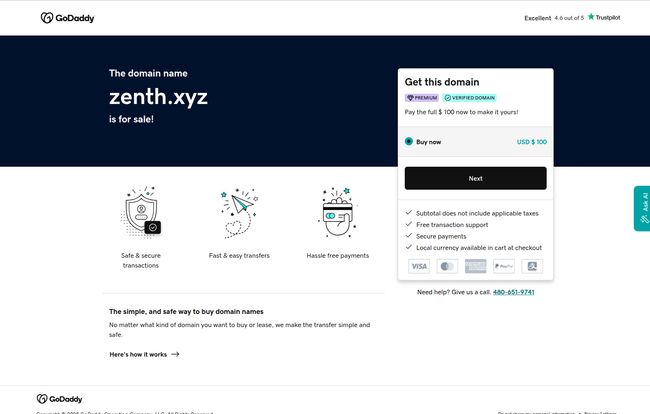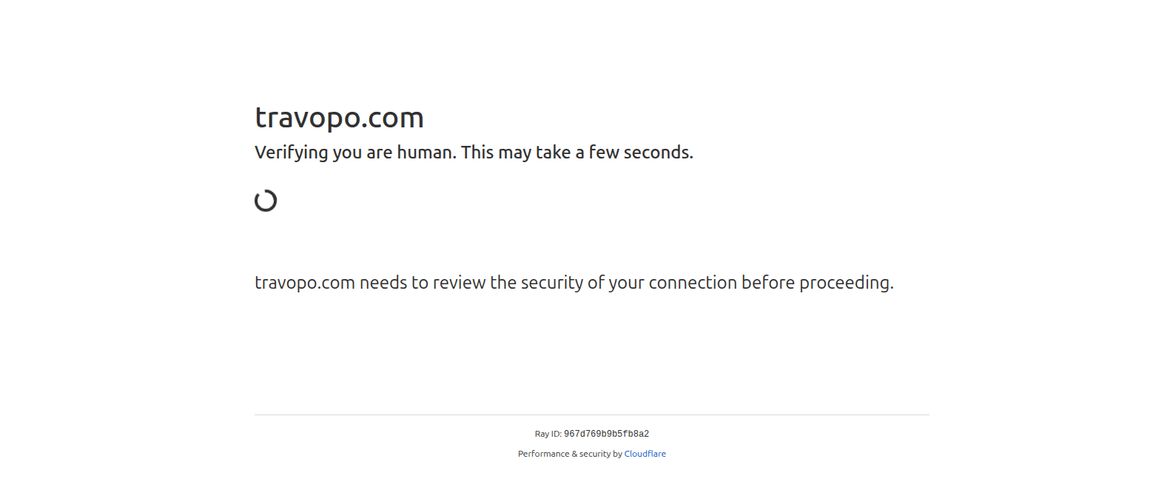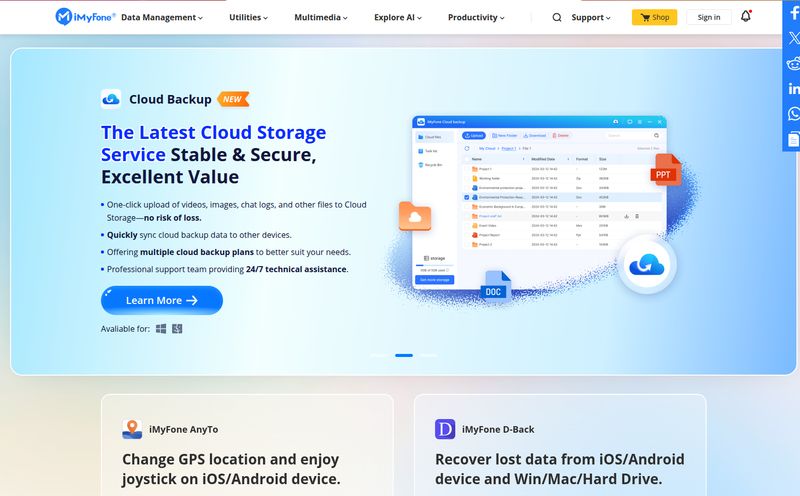Every single day, my inbox, my feeds, my entire digital existence is flooded with the “next big thing” in AI. There’s always a new platform promising to revolutionize how we write, design, or even think. It’s exhausting, but also… pretty exciting. So when I heard about Zenth AI, my curiosity was definitely piqued. The pitch? AI-powered image generation and a chat with an adorable AI pet. A little bit of productivity, a little bit of fun. Sounds neat, right?
It’s a combo that makes sense. You’re grinding away on a project, feeling stuck, and you can either generate a wild new visual concept to break the block or, I guess, complain to your digital doggo about your creative woes. I’ve seen weirder productivity hacks. But as I went to check it out, I stumbled into one of the more bizarre situations I’ve seen in a while. A real head-scratcher.
What Exactly Was Zenth AI Supposed to Be?
On paper, Zenth AI sounded like a pretty cool little package. The core idea was to merge two popular AI trends into one free-to-use platform. First, you have the AI image generation. We've all seen the magic of tools like Midjourney or DALL-E. You type in a crazy prompt like “a raccoon astronaut eating pizza on the moon in the style of Van Gogh,” and poof, you get art. For creatives, marketers, or just people looking to make a funny meme, these tools are a godsend. Zenth was supposed to be another player in that sandbox.
Then there’s the other, fuzzier side of the coin: chatting with adorable AI pets. This one feels a bit more whimsical. Think of it as a Tamagotchi for the 2020s, but one you can actually have a conversation with. A little AI companion to keep you company, maybe bounce ideas off of, or just provide a little dopamine hit during a long workday. It's a bit niche, but I can see the appeal. It’s the kind of feature that builds a quirky, loyal user base. A digital Swiss Army knife for the right-brained among us.

Visit Zenth AI
The Big "But"... A Digital Detective Story
So, with my interest sufficiently captured, I did what any tech blogger would do. I opened a new tab and typed in the address I found: zenth.xyz. I was expecting a slick landing page, maybe some cool examples of AI-generated art, and a big shiny “Download Now” button.
That is not what I found.
Instead, I was greeted by a stark, sterile GoDaddy landing page. Bold letters at the top announced: "The domain name zenth.xyz is for sale!" For a cool $100, it could be mine. I blinked. I checked the URL again. Yep, that was it. The digital home of this promising new AI tool was… an empty lot with a for-sale sign hammered into the dirt. This is the online equivalent of showing up to a restaurant for your reservation and finding the building has been condemned.
Let's be real for a second. This is a massive red flag. For a tech company, especially a brand-new AI startup, your domain is your lifeblood. It's your storefront, your headquarters, your billboard. To let it lapse or to put it up for sale suggests one of a few things, none of them great: the company has folded, they forgot to pay their domain bill (yikes), or they've pivoted so dramatically that they've abandoned their old identity entirely.
The Promise vs. The Reality
This whole situation is a classic case of expectations versus reality in the tech world. It’s a hype cycle in miniature. Let’s break it down.
The Promise: A free, innovative platform that would boost your creativity with stunning AI images and give you a cute AI pet to chat with. It was marketed as the future of innovation, a tool to unleash limitless possibilities. Sounds great, doesn't it?
The Reality: An inaccessible platform. A dead end. The digital address is up for grabs to the highest bidder (or, well, the first person with a hundred bucks). All that promised innovation is currently locked behind a GoDaddy paywall, and not in the way the original founders intended.
I've been in the SEO and digital marketing game for years, and I've seen this story play out more times than I can count. The AI gold rush is real, and it has led to an explosion of projects. Some are brilliant. Many are… just ideas that never quite get off the ground. Zenth AI, it seems, is one of the latter. A digital ghost.
What We Can Learn from the Zenth AI Saga
Okay, so the tool is a dud. But can we learn something from this? Absolutely. This is a perfect teachable moment for anyone interested in tech, marketing, or just finding cool new tools online.
The Importance of a Digital Foundation
Your domain name isn't just a technicality; it's the foundation of your brand's entire online presence. It’s tied to your SEO, your email addresses, your brand recognition, and most importantly, your users' trust. When that foundation vanishes, everything built on top of it crumbles. It's a stark reminder that even in the high-tech world of AI, the basics still matter profoundly.
Due Diligence is Your Best Friend
For users, the lesson is simple: vet the new, shiny objects! Before you get too invested in a new platform, before you integrate it into your workflow, do a quick check. Does the company have a social media presence? Is there an active community? Does their website look like it’s been updated since 2019? And, you know, does it actually exist? A five-minute search can save you a lot of future frustration.
The Volatility of the AI Market
Zenth AI is a perfect microcosm of the current AI market. It is volatile. It’s the wild west. For every stable, well-funded platform like ChatGPT, there are a hundred Zenths—ideas that burn bright and fast before disappearing without a trace. It’s exciting, but it means you have to be nimble and not put all your eggs in one unproven basket.
Are There Alternatives to What Zenth AI Promised?
So, you can't get Zenth AI. Bummer. But the ideas it was built on are still out there! If you were intrigued by the promise, here are some fantastic, actually existing alternatives you can use right now.
For AI Image Generation, you are spoiled for choice. Midjourney is still the king for artistic and hyper-realistic images, though it operates through Discord which can be a bit quirky for newcomers. DALL-E 3, accessible through a ChatGPT Plus subscription or for free via Microsoft Designer, is incredibly powerful and user-friendly. And if you're looking for a great free option with tons of control, I personally love playing around with Leonardo.Ai.
For the AI Pet Chat feature, things are a bit more scattered. There isn't a single dominant "AI Pet" app yet. However, you can easily replicate the experience on a platform like Character.ai, where you can find or create characters of any kind, including talking cats, philosophical dogs, you name it. It's a playground for conversational AI and a whole lot of fun.
Frequently Asked Questions about Zenth AI
- What was Zenth AI?
- Zenth AI was a conceptual AI platform that was supposed to offer AI-powered image generation and a virtual pet chat feature to boost creativity and productivity.
- Is Zenth AI free?
- It was marketed as a free tool. However, the platform is currently completely inaccessible because its domain name, zenth.xyz, is listed for sale.
- Can I still download Zenth AI?
- No. With the official domain gone, there's no legitimate or safe way to find or download the Zenth AI tool. Any site claiming to offer it should be treated with extreme caution.
- Why is the Zenth AI domain for sale?
- While we can't know for certain, a domain being put up for sale usually means the project has been abandoned, the company has shut down, or they simply failed to renew it. In any case, it signals that the project is no longer active.
- What are good alternatives to Zenth AI for image generation?
- Excellent, and more importantly, functional alternatives include industry leaders like Midjourney and DALL-E 3, as well as robust free options like Leonardo.Ai.
A Ghost in the Machine
So ends the strange tale of Zenth AI. It was a cool idea, a clever combination of features that might have found a real audience. But for now, it's just a ghost in the machine, a digital what-if. The whole episode is a fantastic, if slightly funny, reminder that in the fast-moving world of AI, not every rocket makes it to orbit. It underscores the need to look past the hype and check if there's actually a solid foundation underfoot.
Now if you'll excuse me, I'm going to go ask Leonardo.Ai to generate an image of a "digital ghost haunting a GoDaddy domain sales page." Seems fitting.



